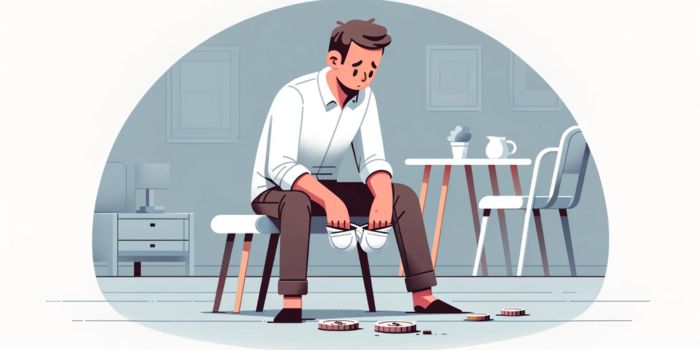
Debt Review, often referred to as debt counselling, is a process created to assist individuals who are struggling financially. It’s a way to help people manage their debts and find a path to financial stability. When someone is under Debt Review, a debt counsellor works with them to assess their financial situation, negotiate with creditors, and create a manageable repayment plan. This process allows individuals can cover their essential living expenses while also paying off their debts over time. The goal is to prevent the harsh consequences of defaulting on payments, such as repossession of assets or legal actions. Debt Review offers a structured approach to debt management, providing a rescue line to those feeling overwhelmed by their financial duties.
Key Takeaways
- Debt Review is a structured process introduced by the National Credit Act to assist South Africans in managing their debts.
- The process involves assessment, negotiation with creditors, and legal procedures to create a feasible repayment plan.
- Benefits of Debt Review include financial stability, legal protection, and peace of mind.
- Potential drawbacks encompass credit score impact, duration under Debt Review, and associated costs.
The Basics of Debt Review
What is Debt Review?
Debt Review, sometimes known as debt counselling, is a process introduced by the National Credit Act (NCA) to help South Africans who are struggling with their financial commitments. When you’re under Debt Review, a registered debt counsellor reviews your finances. They’ll assess your income, your monthly expenses, and all your outstanding debts. Based on this assessment, the counsellor will work out a realistic and structured monthly budget and repayment plan. This plan is then presented to all your creditors. The idea is to come up with a plan that allows you to meet your basic needs and pay off your debts in a way that’s manageable for you.
Why consider Debt Review?
Many South Africans find themselves unable to keep up with their monthly bills and loan repayments. This can lead to sleepless nights, constant stress, and even legal troubles if creditors decide to act. Debt Review offers a way out of this cycle. Restructuring your debt repayments aims to allow you to cover your living costs and still make progress towards clearing your debt. It’s not just about reducing monthly payments; it’s about creating a sustainable way for you to manage your finances. Debt Review also offers legal protection, meaning that while you’re under review, your assets (like your home or car) are safe from repossession if you stick to the agreed-upon plan.
Who can apply for a Debt Review?
Not everyone can just jump into Debt Review. It’s specifically created for individuals who are over-indebted, which means that you’re unable to meet all your financial commitments with your current income. If you find that after paying all your monthly bills and debts, you don’t have enough money left for basic living expenses, then you might be a candidate for Debt Review. However, if you’re merely looking for a way to manage different debts or are seeking financial advice, other solutions might be more suitable. It’s also worth noting that once you’re under Debt Review, you won’t be able to take on any additional credit until you’ve completed the process, and all your debts are settled or you’ve been issued a clearance certificate by your debt counsellor.
The debt review process is a powerful debt relief option in South Africa, providing legal protection and structured repayment plans for those struggling with multiple debts. It’s a lifeline for South Africans aiming to get back on solid financial ground.

The Debt Review Process
Navigating the financial waters of debt can be daunting. However, understanding the Debt Review process can make the journey smoother. Let’s break down the steps involved:
Step 1: Seeking a Debt Counsellor
Finding the right debt counsellor is the foundation of a successful Debt Review journey.
Qualities to look for: A good debt counsellor should be registered with the National Credit Regulator (NCR). They should have a track record of helping individuals navigate their debts, be transparent about their fees, and be willing to answer any questions they might have. Communication is key, so they should be approachable and easy to talk to.
Where to find reputable counsellors: Start by checking the NCR’s official website. They have a list of registered debt counsellors. Recommendations from friends or family can also be valuable. Remember to do your research and read reviews or testimonials before deciding.
Many South Africans turn to debt review for financial relief, but legal support can be a powerful ally too. Dive into our Legalwise Services Review to see how legal plans can protect your rights during the debt review journey.
Step 2: Assessment and Application
Once you’ve chosen a debt counsellor, they’ll begin by assessing your financial situation.
Documentation required: You’ll need to provide details about your income, monthly expenses, and all outstanding debts. This usually means handing over payslips, bank statements, and any loan or credit agreements you have.
The role of credit bureaus: After the assessment, if you’re deemed over-indebted, your debt counsellor will notify the credit bureaus that you’re under Debt Review. This allows creditors to be aware of your status and provides you with legal protection against certain actions they might take.
Step 3: Negotiation with Creditors
This step is where your debt counsellor gets to work on your behalf.
How it works: Using the information you’ve provided, your debt counsellor will draft a proposed repayment plan. This plan will then be presented to your creditors. The goal is to negotiate interest rates that are lower than others or extended payment terms, making your monthly repayments more manageable.
Potential outcomes: In many cases, creditors are willing to accept the proposed plan, especially if it means they’ll eventually get their money back. However, if an agreement can’t be reached with a particular creditor, that debt won’t be included in the Debt Review, and you’ll need to handle it separately.
Step 4: Legal Processes and Court Orders
Once a repayment plan is agreed upon, it’s time to make it official.
The role of the court: Your debt counsellor will submit the plan to a magistrate’s court. The court will then review the plan to allow it to be fair and reasonable. If approved, the plan becomes a court order.
What to expect: Once the repayment plan is a court order, it’s legally binding. This means you must stick to the payments, but it also means your creditors can’t take certain actions against you, like repossessing assets, if you keep up with the agreed-upon payments. If you fail to make payments, your creditors can take legal action against you.
For those whose financial situation has surpassed the remedial scope of debt review, exploring Voluntary Sequestration might be a necessary step. This legal process can provide a fresh start by discharging most debts under certain conditions.
Benefits of Debt Review
Embarking on the Debt Review journey is a significant decision. While the process might seem daunting, the benefits it offers can be life-changing for many. Let’s delve into some of the advantages that come with choosing Debt Review:
Financial Stability
One of the most immediate benefits of Debt Review is the sense of financial stability it brings. With the guidance of a debt counsellor, you’ll have a structured repayment plan designed for your unique financial situation. This plan allows you to cover your essential living expenses while also chipping away at your debts. Over time, as you stick to this plan, you’ll find that the weight of debt becomes less burdensome. You’ll no longer be juggling more than one payment or facing the stress of deciding which bill to pay first. Instead, you’ll have a clear path forward, leading to a future free from the shackles of overwhelming debt.
Legal Protection
Debt Review isn’t just about organizing your finances; it also offers a layer of legal protection. Once you’re officially under Debt Review and your repayment plan has been approved by the court, your assets are protected. This means that if you stick to the agreed-upon payments, creditors can’t repossess items like your home or car. Additionally, they can’t take legal action against you for debts included in the review. This protection gives you breathing room to focus on getting back on your feet without the constant fear of losing your possessions or facing legal battles.
Peace of Mind
The strain of debt doesn’t just impact your wallet; it takes a toll on your mental and emotional well-being. The constant worry, the sleepless nights, and the stress can be overwhelming. By choosing Debt Review, you’re not only addressing the financial aspect of your debt but also the emotional side. Knowing that you have a plan in place, that you’re making progress, and that you have legal protection can bring immense peace of mind. Over time, as you see your debts decrease and your financial situation improves, you’ll experience a boost in confidence and a renewed sense of hope.
» Explore further: How a Debt Review Clearance Certificate can save you
Potential Drawbacks and Considerations
Credit Impact
When you enter Debt Review, it’s noted on your credit profile. This notation signals to potential lenders that you’re currently undergoing a process to manage your debts. As a result, while you’re under Debt Review, you won’t be able to access new credit, such as loans or credit cards. This restriction is in place to allow you not to accumulate further debt while trying to manage your current financial situation. Once you’ve completed the Debt Review process and all your debts are settled, the notation is removed from your credit profile. However, it’s worth noting that your credit score might take some time to recover fully. On the bright side, consistently making payments as per your Debt Review plan can positively influence your credit history in the long run.
Duration
The duration of the Debt Review process varies depending on individual circumstances. Factors like the total amount of debt, the terms negotiated with creditors, and your monthly repayment capacity all play a role. For some, the process might take a couple of years, while for others, it could extend longer. It’s essential to approach Debt Review with patience and a long-term perspective. Remember, the goal is sustainable financial health, and that often requires time.
Costs
Debt Review isn’t a free service. Debt counsellors charge fees for their expertise and assistance. Typically, there’s an initial application fee, followed by a restructuring fee once a repayment plan is agreed upon. There might also be monthly service fees throughout the duration of the Debt Review. These fees are regulated by the National Credit Regulator (NCR) to allow fairness. It’s crucial to discuss and understand all associated costs upfront with your debt counsellor. In most cases, these fees are incorporated into your restructured payment plan, ensuring you don’t face any unexpected out-of-pocket expenses.
Exploring debt review options is crucial for South Africans seeking financial relief. For a comprehensive analysis of a leading debt solution provider, check out our in-depth Debt.co.za Review.

Alternatives to Debt Review
While Debt Review is a powerful tool for many South Africans facing financial challenges, it’s not the only option available. Depending on your unique circumstances, other solutions might be more suitable. Let’s explore some of the alternatives to Debt Review:
Debt Consolidation
Debt Consolidation is a popular choice for those looking to simplify their financial duties. Instead of juggling more than one payment with varying interest rates, this approach consolidates all your debts into a single loan. The idea is to secure a loan with an interest rate that is lower than others, use it to pay off all your existing debts, and then focus on repaying just this one loan. This can make managing your finances easier and might even save you money in the long run. However, it’s essential to note that Debt Consolidation requires you to qualify for such a loan, which might be challenging if you have a low credit score.
Bankruptcy
Bankruptcy is often viewed as the last option when all other avenues have been exhausted. Declaring bankruptcy means you’re legally acknowledging that you can’t meet your financial duties. While it can provide relief from most debts, the consequences are significant. Your assets, like your home or car, might be sold to repay creditors. Additionally, a bankruptcy record will stay on your credit profile for several years, making it challenging to secure loans or credit in the future. It’s a decision that shouldn’t be taken lightly and should be discussed thoroughly with a financial advisor.
Financial Counselling
If you’re feeling the pinch but aren’t sure if Debt Review or other formal processes are right for you, financial counselling might be the answer. Financial counsellors offer advice and guidance on managing debts, budgeting, and general financial planning. They can provide insights into your financial situation, suggest ways to improve, and even help negotiate with creditors informally. It’s a more flexible approach, allowing you to gain control of your finances without committing to a structured process like Debt Review.
About Arcadia Finance
Obtain your loan effortlessly using Arcadia Finance. The application process is free, and you have the flexibility to choose from a pool of 19 well-established lenders. Each lender complies with the regulations laid out by the South African National Credit Regulator.
Conclusion
Navigating the complexities of financial challenges can be daunting, but tools like Debt Review offer a beacon of hope for many South Africans. This process, backed by the National Credit Act, provides a structured path towards financial stability, ensuring individuals can meet their duties without compromising their basic needs. While it’s essential to weigh the benefits against potential drawbacks, countless success stories attest to the transformative power of Debt Review. By staying informed, maintaining open communication, and committing to the journey, the dream of a debt-free future is within reach. Whether you’re considering Debt Review or exploring other financial solutions, remember that the journey towards financial freedom is a marathon, not a sprint. With the right guidance and determination, a brighter financial horizon awaits.
FAQs
The duration of the Debt Review process varies based on individual circumstances. Factors such as the total amount of debt, the terms negotiated with creditors, and your monthly repayment capacity all play a role. For some, it might take a couple of years, while for others, it could extend longer. On average, many individuals complete the process within 3 to 5 years. However, it’s essential to approach Debt Review with patience, keeping the end goal of financial stability in mind.
No, while you’re under Debt Review, you won’t be able to access new credit, such as loans or credit cards. This restriction is in place to allow you not to accumulate further debt while working on managing your current financial situation. Once you’ve completed the Debt Review process and all your debts are settled, you can then apply for new credit.
Missing a payment during your Debt Review can have consequences. Firstly, it jeopardizes the legal protection that Debt Review offers against creditors. If you consistently miss payments, creditors might opt to terminate your Debt Review, leaving you vulnerable to legal actions like asset repossession. If you anticipate difficulty in making a payment, it’s crucial to communicate this with your debt counsellor as soon as possible. They can offer guidance and potentially help renegotiate terms with creditors.
While both Debt Review and Debt Consolidation aim to assist individuals in managing their debts, they operate differently. Debt Review is a formal process where a debt counsellor assesses your finances, negotiates with creditors, and creates a structured repayment plan. This process also offers legal protection against certain actions from creditors. On the other hand, Debt Consolidation involves taking out a new loan to pay off different debts. The idea is to consolidate more than one debt into one payment, often with an interest rate that is lower than others. It doesn’t come with the same legal protections as Debt Review.
Exiting the Debt Review process prematurely can be tricky. If you haven’t yet obtained a court order confirming the restructuring of your debts, you can withdraw. However, once a court order is in place, exiting becomes more complex. If you’ve settled all your debts under Debt Review, you can exit the process. If not, you’ll need to consult with your debt counsellor about the implications and potential risks of leaving early.
Fast, uncomplicated, and trustworthy loan comparisons
At Arcadia Finance, you can compare loan offers from multiple lenders with no obligation and free of charge. Get a clear overview of your options and choose the best deal for you.
Fill out our form today to easily compare interest rates from 19 banks and find the right loan for you.


